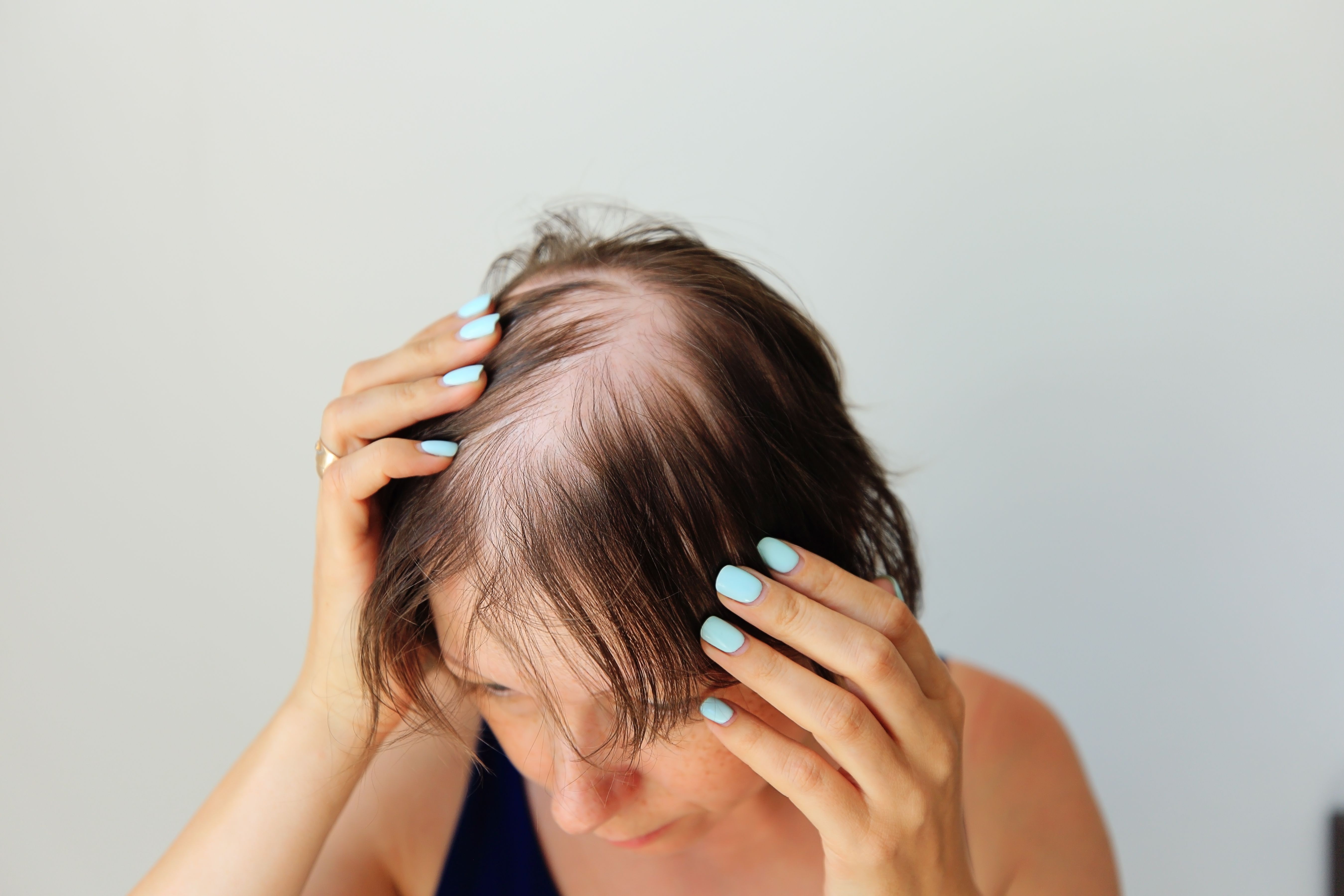- Case-Based Roundtable
- General Dermatology
- Eczema
- Chronic Hand Eczema
- Alopecia
- Aesthetics
- Vitiligo
- COVID-19
- Actinic Keratosis
- Precision Medicine and Biologics
- Rare Disease
- Wound Care
- Rosacea
- Psoriasis
- Psoriatic Arthritis
- Atopic Dermatitis
- Melasma
- NP and PA
- Skin Cancer
- Hidradenitis Suppurativa
- Drug Watch
- Pigmentary Disorders
- Acne
- Pediatric Dermatology
- Practice Management
- Prurigo Nodularis
- Buy-and-Bill
News
Article
Thermus Thermophilus Fermentation Extract Can Treat Androgenic Alopecia
Author(s):
Key Takeaways
- TTFE significantly increased hair density by 96.88% and follicular diameter by 15% in a 12-week clinical trial.
- Transepidermal water loss decreased, and scalp hydration improved, indicating enhanced scalp health.
According to a clinical trial and in vitro study, TTFE can promote scalp health and hair growth by 96.88% while reducing inflammation.
Image Credit: © maxbelchenko - stock.adobe.com

Thermus thermophilus fermentation extract (TTFE) has been proven to promote scalp health and hair growth while reducing inflammation in patients with androgenic alopecia.1 The latest research combines a clinical trial with an in vitro study, offering new hope for patients with this type of hair loss. TTFE is known for its extremophilic proteins and high polyamine content, such as spermidine and spermine, which have been proven to extend life span and delay aging of the skin through the promotion of autophagy.2
In the clinical trial, 32 male patients from Shanghai who had either a Hamilton–Norwood rating of ≥ 3 or a Sinclair rating of ≥ 2 were included. To be eligible, participants could not have had any skin diseases or other conditions in the past 3 months. No previous use of drugs, antibiotics, or hormones for hair growth was permitted.
At baseline, most participants had short, non-pigmented vellus hairs with thinning diameter and reduced density. TTFE was applied to the scalp or roots of the hair and massaged until fully absorbed for 1 to 2 minutes.
Throughout the 12-week trial, the authors compared before and after photographs. The investigators also measured scalp hydration, transepidermal water loss, sebum levels, hair shaft density, and number of follicles using a hydration pin probe, tewameter, sebumeter, and dermoscope on the patients’ shaved scalp areas.
Topical TTFE increased hair density by 96.88% and follicular diameter by 15%, according to macro photographs of scalp hair. Single-hair follicle units significantly decreased by 20.56% while the proportion of multiple-hair follicle units significantly increased by 23.4%. Patients noticed an increase in thicker, darker hair with smaller areas of loss, with the most pronounced effects being seen after 22 weeks.
Transepidermal water loss decreased by 18.39%, 32.56%, and 47.43% at weeks 4, 8, and 12, respectively. The water content of the scalp stratum corneum increased by 28.37% at the end of the trial. Sebum production was reduced by 20% compared to baseline. These levels are usually compromised in patients with androgenic alopecia because of sebaceous gland hypertrophy and excessive sebum secretion.3
The in vitro study also showed that TTFE increased ATP production and Ki67 expression, while regulating β-catenin and TGF-β2. It also demonstrated minimal cytotoxicity with cell viability remaining above 70% at all concentrations. These findings all prove that TTFE may promote hDPCs proliferation, prolong the anagen phase, and restore normal hair growth cycles. There was also an observed decline in the proinflammatory cytokines of IL-1β and IL-6.
“This anti-inflammatory action aligns with emerging therapeutic strategies targeting inflammation in AGA to improve treatment outcomes,” the authors wrote.
Some acknowledged limitations include the small sample size and the limited population diversity. Future research can address these to confirm TTFE’s long-term efficacy in a wider variety of demographic groups. Additionally, more evidence can explore the in-depth mechanisms of TTFE.
Current alopecia treatments like minoxidil and finasteride can have impactful adverse effects and usually do not offer strong results for this subtype of alopecia. Because of this, the novel topical formulation may fulfill a patient need for those diagnosed with androgenic alopecia.
“The diverse effects of TTFE on hair follicle biology and scalp health suggest its promise as a potential therapeutic candidate for managing AGA through several mechanisms,” the authors concluded.
References
1. Hu Y, Wei Z, Wu X, et al. Efficacy of Thermus thermophilus Fermentation Extract in Promoting Hair Growth and Improving Scalp Health in Androgenic Alopecia: A Clinical and In Vitro Study. J Cosmet Dermatol. 2025;24(3):e70095. doi:10.1111/jocd.70095
2. Wang J, Huang H, Tao K, Guo L, Hu X, Chang H. Novel Thermus thermophilus and Bacillus subtilis mixed-culture ferment extract provides potent skin benefits in vitro and protects skin from aging. J Cosmet Dermatol. 2024;23(12):4334-4342. doi:10.1111/jocd.16531
3. Kure K, Isago T, Hirayama T. Changes in the sebaceous gland in patients with male pattern hair loss (androgenic alopecia). J Cosmet Dermatol. 2015;14(3):178-184. doi:10.1111/jocd.12153






